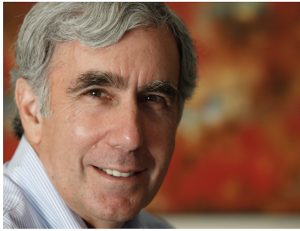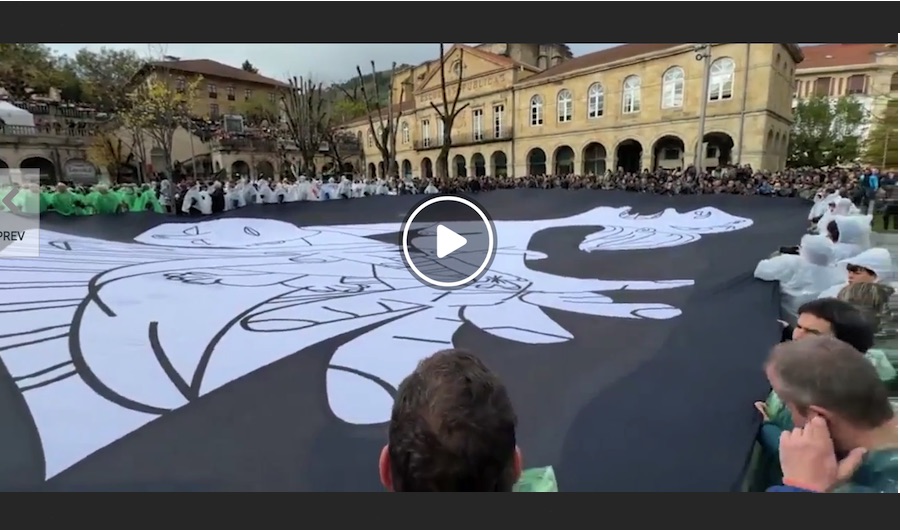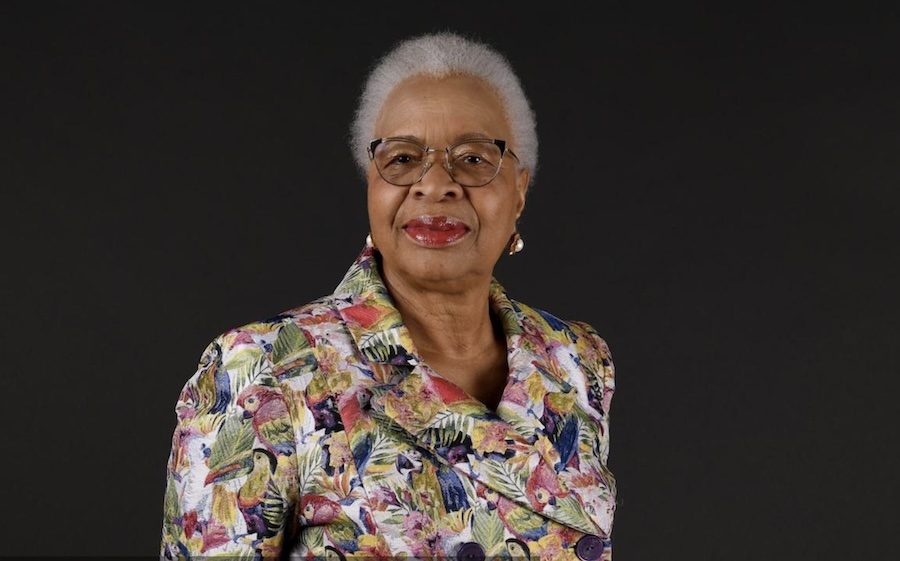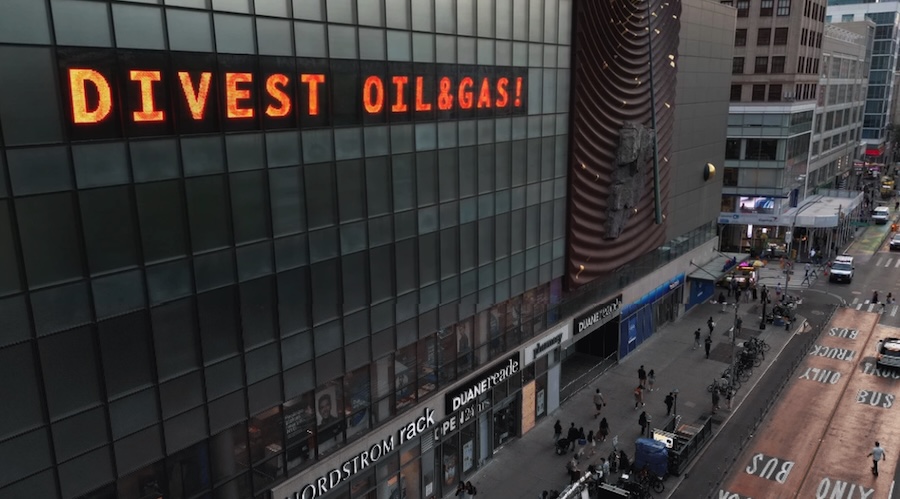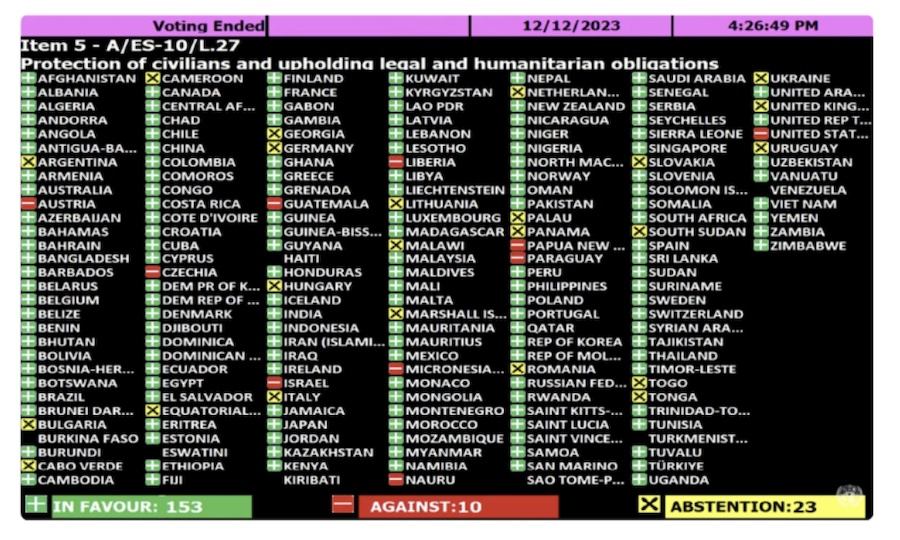FREE FLOW OF INFORMATION
Excerpts from press releases of the Angola Press Agency
Unlike previous additions of the Luanda Biennale, Pan-African Forum for the Culture of Peace, there was very little publicity about the results. However, there were several press releases by the Angola Press Agency, that included the following excerpts.
The Biennale calls for the continuation of intergenerational dialogue .
According to the final communiqué, the forum organized by the Angolan Government, the African Union and UNESCO, advised the implementation of policies guaranteeing the participation of young people in decision-making processes to ensure that their proposals are heard and integrated in programs and strategies.
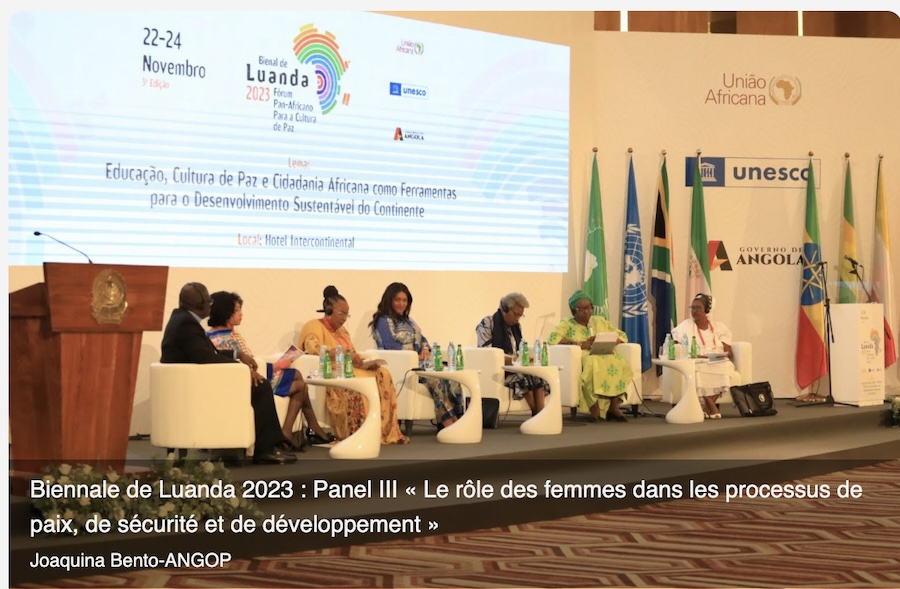
(Click on image to enlarge)
It called for a review of education systems, prioritizing the training of critical and active citizens, enabling young people and entrepreneurs to better understand political processes and play greater roles in society.
It suggested the formulation of policies promoting gender equality and the creation of scientific research centers and resilience programs to face climate change.
The forum also recommended the promotion of the culture of peace through access and effective use of digital technologies and the creation of a network of African women for conflict prevention, peace negotiation and national reconciliation.
The Biennale also spoke out in favor of the integration of women in conflict resolution, in compliance with the African Charter on Human and Peoples’ Rights and the UN, as well as the increase of the number of women in conflict prevention and resolution actions.
The forum, which brought together 790 participants from different African countries, advocated the establishment of partnerships between political leaders and young people, in sustainable social and economic projects, which could benefit society as a whole.
The role of women in peace processes dominates the second day of the Biennale.
“The process of transforming educational systems, innovative financing practices in the African context” and the “role of women in the process of peace, security and development at the African level” marked Thursday the second day of the Pan-African Forum for the culture of peace – Biennial of Luanda.
(Continued in right column)
The Luanda Biennale: What is its contribution to a culture of peace in Africa?
(Continued from left column)
The agenda for this second day also included the approach to “Challenges and opportunities for the integration of the African continent and prospects for economic growth” and “Climate change: ethical challenges, impact, adaptation and vulnerability”.
Visit to historical sites marks end of Luanda Biennale.
Visits to the Agostinho Neto Memorial, the Iron Palace and the National Museum of Military History will mark Friday the closing of the Pan-African Forum for the Culture of Peace and Non-Violence – Biennial of Luanda, which has been taking place since Wednesday . Participants will also visit the Mint and Anthropology museums. . . .
The Pan-African Forum for the Culture of Peace and Non-Violence was attended by the Presidents of the Republic of Cape Verde, José Maria Neves, the Republic of Sao Tome and Principe, Carlos Vila Nova and the Federal Republic Democratic Republic of Ethiopia, Sahle-WorkZewed. The Vice President of Namibia, Nangolo Mbumba, and the Prime Minister of Equatorial Guinea, Manuela Roka Botey also took part in the Luanda Biennale.
Biennale participants commit to spreading the message of peace in their country.
Young participants in the Luanda Biennale 2023 pledged on Friday to disseminate as much as possible, in their countries, the contents and experiences learned during the Pan-African Forum for the Culture of Peace, held in Luanda, aimed at consolidating pacification efforts on the continent.
Speaking to Angop, the Botswanan Mpule Kgetsi, the Mozambican Cheldon Maduela, the Tanzanian Genila Hiel, as well as the Angolan Antonira de Carvalho discussed the importance of the forum and the need for young people to be proactive in the promotion of actions that contribute to peace and the well-being of societies, highlighting peace as the main element.
According to Genila Hiel, a university student eager to spread the message to fellow citizens, the spirit of peace must be instilled from a young age within communities so that people grow up and work in healthy coexistence for sustainable development.
For Cheldon Maduela, it is not only up to governments to address issues related to peace and democracy, which is why he considers the Biennale an inspiring platform to disseminate the experiences obtained. He stressed that peace is the “cornerstone” of the socio-economic development of States and that its preservation requires the contribution of all, without exception.
Namibian leader praises Angola’s commitment to peace in Africa.
The Deputy Minister of Education and Culture of Namibia, Faustina Caley, congratulated this Friday, in Luanda, the Angolan Executive for its key role in the process of the culture of peace and democracy in Africa. . . .
She considered the 3rd edition of the Luanda Biennale a success not only for Angola, but for the continent, because it allowed learning about the concerns of young people, as well as the exchange of knowledge and transmission of experiences between government leaders and former African leaders, with the perspective of leading this fringe towards the best paths for healthy coexistence.
(click here for the original French version of this article.)
